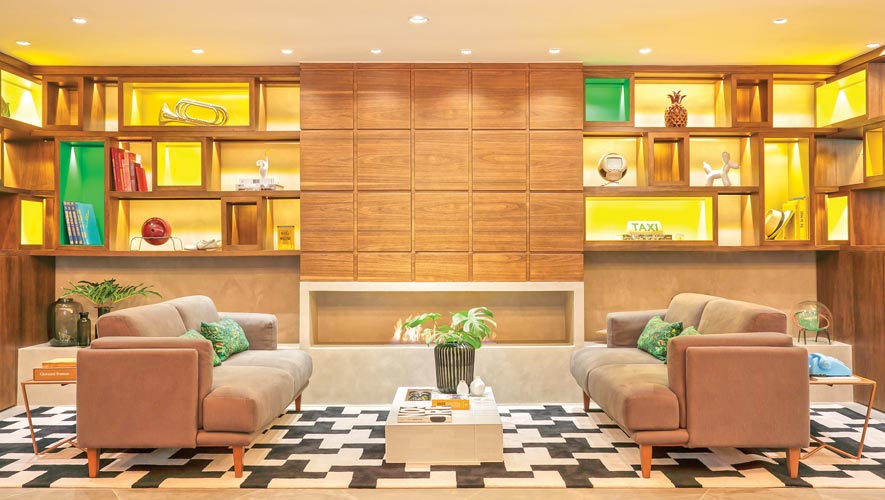The hospitality sector in Cambodia has seen a burst of rapid expansion over the years.
For the latest Cambodian Business news, visit Khmer Times Business
International and local players alike have penetrated the market, especially in the hotel sector.
The capital city, Phnom Penh, is home to more than 800 hotels, with notable names such as Marriot and Park Hyatt establishing a presence here.
However, recent observations also show that boutique hotels, a separate market on their own, have been making waves with the increase in tourism in the country.
This has encouraged overseas players to consider Cambodia as one of their future ventures.
A boutique hotel is often identified as a small hotel which typically hosts between 10 and 100 rooms.
These hotels present a personalised outlook, offering individualised unique selling points that come with upscale accommodation.
Many are furnished in a themed, very stylish and aspirational, modern manner.
The popularity of these series of hotels has drawn global attention among tourists.
Multi-national hotels have also been seen trying to capture a market share in this segment over the last couple of years.
Marriot International had announced in early August that they had strengthened their commitment to Cambodia to bring about a brand of boutique hotels. They had signed an agreement with The Khom Hotel in Phnom Penh that will be a part of Marriot’s Autograph Collection.
The chief development officer in an interview with the Khmer Times had attributed the announcement to the mass arrival of tourists in the country.
The Kingdom saw 3.3 million tourists arrive within the first half of 2019, marking an 11.2 percent increase.
Yoo Hotels & Resorts for instance, is considering making an entrance sometime this year into the region and Cambodia will be home to several numbers of their hotels.
A representative of the hotel says that while Yoo Hotels and Resorts have not yet identified sites for Yoo2 boutique hotels in Cambodia, the global company is turning its attention towards Cambodia.
The conglomerate identifies the Kingdom as a market of strong potential leading to them wanting to open properties here.
Yoo2 describes itself as the antithesis of a hotel chain, redefining the way guests stay and interact with their community. It was founded by John Hitchcox and Philippe Starck.
Following the recent launch of YOO’s first Southeast Asian office in Bangkok, the company will now start to expand their concept across the region.
Yoo2 has identified a series of attractive urban and resort locations in Thailand, Malaysia, Indonesia, Vietnam, Cambodia and the Philippines, with the overall target of signing 20 unique, design-led and locally-inspired hotels by 2024.
“Southeast Asia is one of the world’s most desirable regions,” says Rich Millar, YOO Worldwide’s vice-president of business development – Asia Pacific.
“With its combination of vibrant cities, spectacular scenery, idyllic islands and blissful beaches, it is no surprise that visitor arrivals to the ASEAN region continue to rise sharply, now exceeding 125 million per year. Many visitors, especially from well-established source markets, are seeking more than just a place to stay; they want a genuine connection with their destination. Yoo2 will allow guests to experience Southeast Asia like never before.”
Yoo2 is currently welcoming guests in Brazil at Yoo2 Rio de Janeiro, and will soon make its debut in Canada with Yoo2 Vancouver. YOO Worldwide intends to use this as a springboard for its widespread expansion across Southeast Asia.
YOO Worldwide is a global leader in hotel and residential design, branding and marketing, with 20 years of experience and more than 81 projects in 36 countries.
In the existing market for instance, boutique hotels such as Lumiere and Tea House have been attracting attention with their personalised-theme offering.
The Tea House Urban Asia boutique hotel offers tea sampling and gourmet snacks that can be enjoyed in a green haven of tropical plants and ponds. This is seen as both a visual and edible feast that can be enjoyed in the middle of a capital city.
Tony Lewis, owner of Villa Grange Boutique Hotel acknowledges the rise in demand for boutique hotels and believes that the services offered are more personalised compared wity other hospitality players.
Siem Reap, also popular with boutique hotel brands, has been attracting more and more tourists into the region with a stylised way of spending their holidays. Pavilion, Siem Reap has gained popularity among tourists because of the difference in environment the hotel provides compared with a high-end market player.
Boutique hotels garnering attention have been accommodating different types of tourists, especially those who arrive from different countries that are already popular with themed hotels and who are also looking for a similar style of accommodation.
While there have been new international players eyeing Cambodia as their next investment platform, the Department of Industry Tourism has been observing the demand for boutique hotels declining in the last couple of years.
“More and more boutique hotels are starting to look similar and this has led to a decline in demand,” says Serei Rath, Director of Department of Industry Tourism in a conversation with Capital Cambodia.
Serei says the demand for boutique hotels was initially on the rise because of the difference the segment had offered.
He believes that over the years, more and more players are imitating one another thus contributing to the decline.
He comments that difference in architecture is often the differentiating factor in attracting tourists to boutique hotels.
Serie acknowledges that while new players have been entering the market, not all of them will be listed as boutique hotels.
Most boutique hotels in the Kingdom are awarded a 3-star accreditation despite some of them applying for the 4-star category.
“Boutique hotels are often categorised as small hotels with themed architecture, unlike high-end hotels,” he adds, referring to the fact that not all boutique hotels can be considered as one individual entity.
Furthermore, he adds that boutique hotels are heading out of cities in Cambodia and focusing on different areas in order to offer a variety of experience.
Marriot International has a hotel in Siem Reap and Phnom Penh but has not disclosed its third location.
The tourism department has been working on coming up with ways to increase demand through star rating systems.
It is also devising ways of highlighting the different attraction points the boutique hotels in the country are offering.




